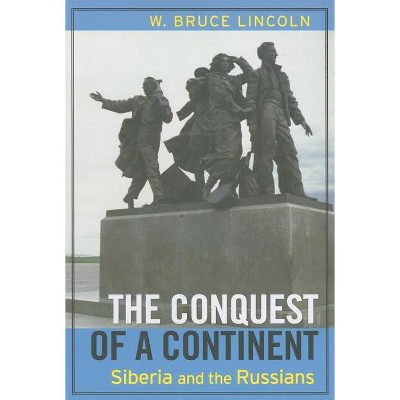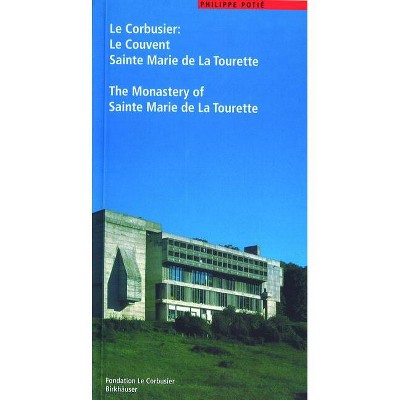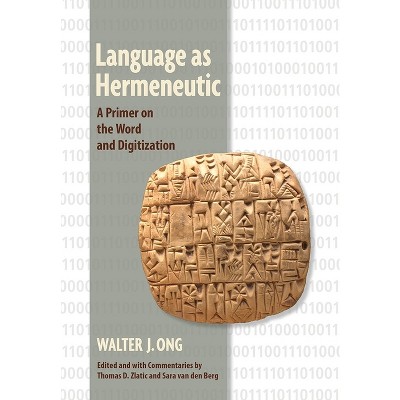Sponsored

Continent by Default - by Anne Marie Le Gloannec (Hardcover)
In Stock
Sponsored
About this item
Highlights
- In Continent by Default, Anne Marie Le Gloannec, a distinguished analyst of contemporary Europe, considers the European Union as a geopolitical project.
- About the Author: The late Anne Marie Le Gloannec was a senior research fellow at Sciences Po.
- 280 Pages
- Political Science, Geopolitics
Description
About the Book
"In Continent by Default, Anne Marie Le Gloannec considers the European Union as a geopolitical project. This book offers a comprehensive narrative of how the European Union came to organize the continent, first by default through enlargement and in a more proactive, innovative, but not always successful way. The EU was not conceived as a foreign-policy actor, she says, and the Union was an innocent on questions of geopolitics. For readers who may wonder how the EU arrived at Brexit, the invasion of Ukraine, and the refugee crisis, Le Gloannec ties events to the EU's long-term failure to think in politically strategic terms. Le Gloannec takes readers through the process by which, under the security umbrella of the United States, the European Commission engineered a new way for states and societies to interact. Continent by Default shows the Commission domesticated international relations and promoted peace by including new members--enlargement was the most significant tool the EU used from its inception to organize the continent, but the EU also tied itself to its regional neighbors through various programs that too often gave those neighbors the advantage. As Continent by Default makes clear, the EU cannot devise strategy because foreign policy remains the privilege of national governments. It is a geopolitical actor without geopolitical means"--Publisher's Web site.Book Synopsis
In Continent by Default, Anne Marie Le Gloannec, a distinguished analyst of contemporary Europe, considers the European Union as a geopolitical project. This book offers a comprehensive narrative of how the European Union came to organize the continent, first by default through enlargement and in a more proactive, innovative, but not always successful way. The EU was not conceived as a foreign-policy actor, she says, and the Union was an innocent on questions of geopolitics. For readers who may wonder how the EU arrived at Brexit, the invasion of Ukraine, and the refugee crisis, Le Gloannec ties events to the EU's long-term failure to think in politically strategic terms.
Le Gloannec takes readers through the process by which, under the security umbrella of the United States, the European Commission engineered a new way for states and societies to interact. Continent by Default shows the Commission domesticated international relations and promoted peace by including new members--enlargement was the most significant tool the EU used from its inception to organize the continent, but the EU also tied itself to its regional neighbors through various programs that too often gave those neighbors the advantage. As Continent by Default makes clear, the EU cannot devise strategy because foreign policy remains the privilege of national governments. It is a geopolitical actor without geopolitical means.
Review Quotes
Le Gloannec's posthumous account of the European Union's ad hoc approach to foreign policy covers two areas: enlargement and neighborhood policy, as well as in-depth case studies of the migrant crisis and the strained relationship with Russia. The book weaves together multiple examples that convincingly advance the central argument that circumstances drive EU policy responses more than its own strategies, leading to missed opportunities and outright failures. Readers familiar with European affairs will find themselves nodding in agreement throughout this well-written book.
-- "Choice"The chasm between the aspirations of the European Union (EU) and its capabilities has never been on greater display than over the last decade. In this brilliant, engaging, and remarkably balanced analysis of the EU's current geopolitical crises, Anne Marie Le Gloannec argues that its roots lie in the fact that the EU "came to organize the continent in a fit of absentmindedness".
-- "Political Science Quarterly"This thoughtful, wide-ranging and lucid account of Europe's engagement with its geopolitical environment is a reminder that [Le Gloannec's] voice will be missed among those who care about the future of the European experiment.
-- "Survival"About the Author
The late Anne Marie Le Gloannec was a senior research fellow at Sciences Po. She is the editor of Non-state Actors in International Relations.
Shipping details
Return details
Frequently bought together

Trending Non-Fiction
















